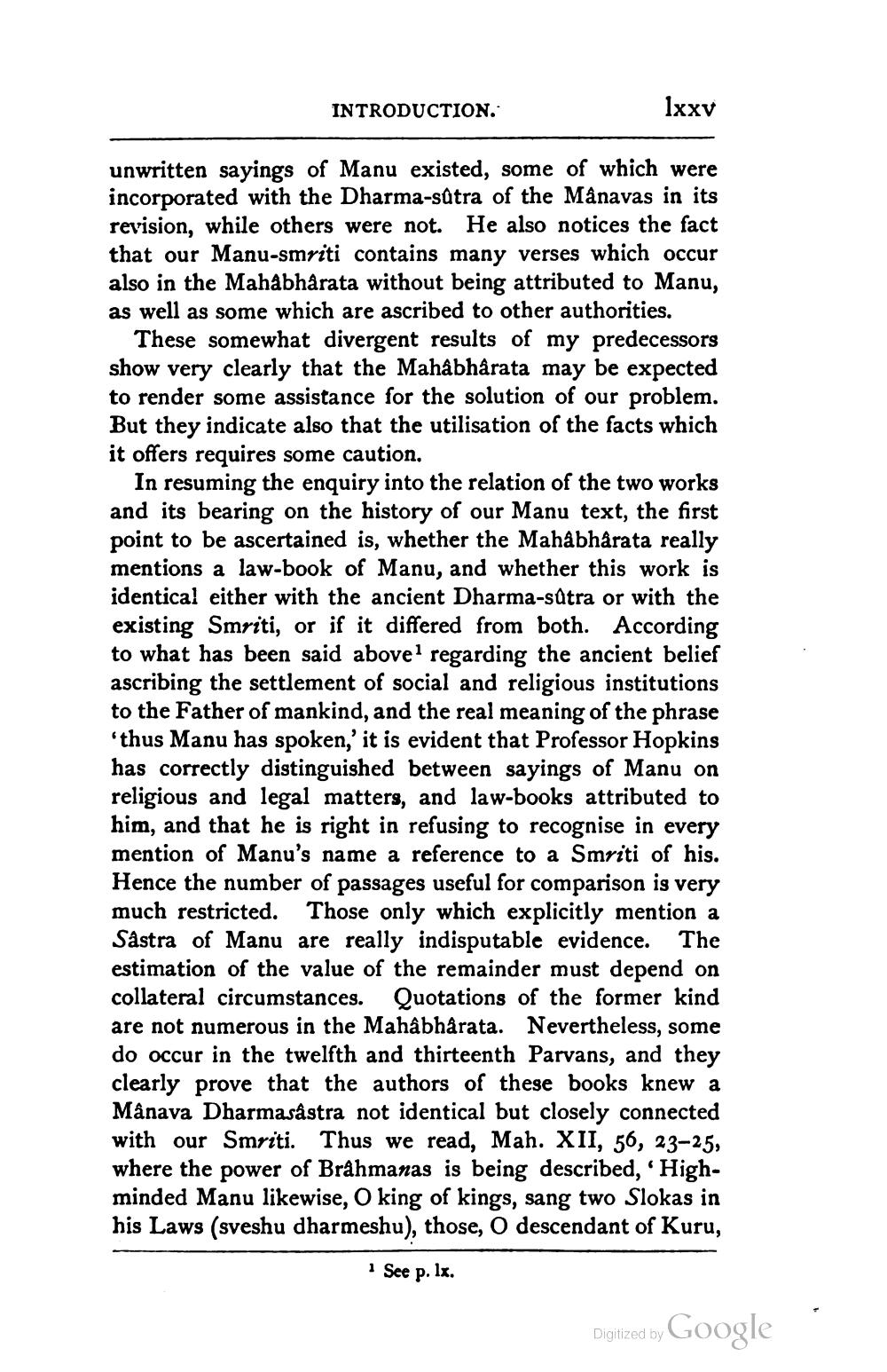________________
INTRODUCTION.
lxxv
unwritten sayings of Manu existed, some of which were incorporated with the Dharma-sûtra of the Mânavas in its revision, while others were not. He also notices the fact that our Manu-smriti contains many verses which occur also in the Mahabharata without being attributed to Manu, as well as some which are ascribed to other authorities.
These somewhat divergent results of my predecessors show very clearly that the Mahâbhârata may be expected to render some assistance for the solution of our problem. But they indicate also that the utilisation of the facts which it offers requires some caution.
In resuming the enquiry into the relation of the two works and its bearing on the history of our Manu text, the first point to be ascertained is, whether the Mahabharata really mentions a law-book of Manu, and whether this work is identical either with the ancient Dharma-sûtra or with the existing Smriti, or if it differed from both. According to what has been said above1 regarding the ancient belief ascribing the settlement of social and religious institutions to the Father of mankind, and the real meaning of the phrase 'thus Manu has spoken,' it is evident that Professor Hopkins has correctly distinguished between sayings of Manu on religious and legal matters, and law-books attributed to him, and that he is right in refusing to recognise in every mention of Manu's name a reference to a Smriti of his. Hence the number of passages useful for comparison is very much restricted. Those only which explicitly mention a Sâstra of Manu are really indisputable evidence. The estimation of the value of the remainder must depend on collateral circumstances. Quotations of the former kind are not numerous in the Mahâbhârata. Nevertheless, some do occur in the twelfth and thirteenth Parvans, and they clearly prove that the authors of these books knew a Mânava Dharmasâstra not identical but closely connected with our Smriti. Thus we read, Mah. XII, 56, 23-25, where the power of Brahmanas is being described, 'Highminded Manu likewise, O king of kings, sang two Slokas in his Laws (sveshu dharmeshu), those, O descendant of Kuru, 1 See p. lx.
Digitized by
Google




